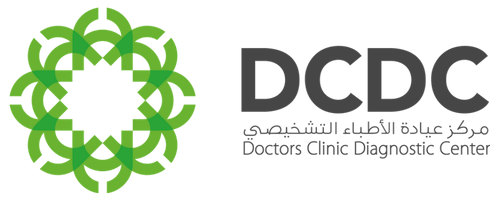Diabetes has become a global health challenge, affecting millions of individuals across all age groups. Managing this chronic condition requires a multi-faceted approach that combines lifestyle changes, medical interventions, technological advancements, and emerging research. This article explores breakthrough approaches to diabetes management that have shown significant promise in improving quality of life, controlling blood glucose levels, and minimizing long-term complications.
Understanding Diabetes
Diabetes is characterized by elevated blood sugar levels due to impaired insulin production (Type 1 diabetes) or insulin resistance (Type 2 diabetes). While genetic factors play a role, lifestyle and environmental factors contribute significantly to the prevalence of Type 2 diabetes. Managing diabetes involves not only addressing blood sugar but also preventing complications like cardiovascular disease, neuropathy, and kidney damage.
1. Personalized Nutrition Plans
The era of one-size-fits-all diets is over. Breakthroughs in nutritional science have paved the way for personalized nutrition plans that cater to an individual’s genetic makeup, gut microbiome, and lifestyle.
Key Components
- Carbohydrate Counting: Monitoring carbohydrate intake helps stabilize blood sugar levels. Low-glycemic-index (GI) foods are often recommended for sustained energy release.
- Time-Restricted Eating (TRE): Limiting eating windows to 8-10 hours per day can improve glucose metabolism and insulin sensitivity.
- Gut Microbiome Focus: Research highlights the role of gut health in diabetes. Foods rich in probiotics (e.g., yogurt, kimchi) and prebiotics (e.g., fiber-rich vegetables) promote a balanced microbiome.
2. Continuous Glucose Monitoring (CGM) Technology
Gone are the days of painful finger pricks multiple times a day. Continuous glucose monitoring (CGM) devices have revolutionized diabetes management.
How It Works
CGM devices use sensors inserted under the skin to monitor glucose levels in real time. Users can view data on smartphones, allowing for instant feedback and actionable insights.
Benefits
- Better Decision-Making: CGMs provide data trends that help patients adjust meals, exercise, and medication.
- Reduced Hypoglycemia: Alerts warn users of dangerously low glucose levels.
- Improved Compliance: Easy tracking motivates users to stay consistent with their management plan.
3. Wearable Insulin Delivery Systems
Insulin pumps and wearable patches have transformed how insulin-dependent diabetics manage their condition. These devices offer precision, convenience, and improved quality of life.
Advancements
- Closed-Loop Systems (Artificial Pancreas): Combining CGMs with insulin pumps, these systems automatically adjust insulin delivery based on blood glucose readings.
- Smart Pens: Insulin delivery pens with Bluetooth connectivity track dosage and provide reminders.
4. Pharmacological Innovations
The pharmaceutical landscape for diabetes management has seen significant advancements, with new drugs targeting specific mechanisms to control blood sugar levels and improve outcomes.
GLP-1 Receptor Agonists
Medications like semaglutide and liraglutide mimic the incretin hormone, which helps regulate glucose by:
- Increasing insulin secretion.
- Slowing gastric emptying.
- Reducing appetite, promoting weight loss.
SGLT2 Inhibitors
Drugs such as dapagliflozin and empagliflozin work by promoting glucose excretion through urine. These medications also offer cardiovascular and renal benefits.
Dual-Acting Drugs
Emerging therapies combine GLP-1 receptor agonists with GIP (glucose-dependent insulinotropic polypeptide) mimetics, enhancing their efficacy in lowering blood sugar and supporting weight management.
5. Behavioral and Psychological Interventions
Diabetes management isn’t just physical—it’s mental. Addressing the psychological aspects of diabetes is a breakthrough in achieving sustainable results.
Cognitive Behavioral Therapy (CBT)
CBT helps patients:
- Overcome negative beliefs about their condition.
- Develop coping mechanisms to handle stress, which can impact blood sugar levels.
Mindfulness-Based Interventions
Mindfulness practices like meditation and yoga reduce stress, enhance emotional well-being, and improve glycemic control.
Peer Support Programs
Connecting with others facing similar challenges fosters motivation, accountability, and shared learning experiences.
6. Digital Health Platforms and Apps
The integration of technology into healthcare has given rise to diabetes-specific digital platforms and mobile apps that simplify management.
Features
- Diet Tracking: Apps like MyFitnessPal and Carb Manager help users log meals and monitor carb intake.
- Exercise Guidance: Programs offer personalized workout recommendations based on fitness levels.
- Telemedicine Support: Remote consultations with healthcare providers enable timely adjustments to treatment plans.
AI-Powered Insights
Artificial intelligence (AI) analyzes data from CGMs, fitness trackers, and apps to provide predictive analytics, empowering patients to make proactive decisions.
7. Exercise as Medicine
Physical activity remains one of the most effective tools for managing diabetes, with new approaches enhancing its benefits.
High-Intensity Interval Training (HIIT)
Short bursts of intense exercise alternated with rest periods improve insulin sensitivity more effectively than traditional cardio workouts.
Strength Training
Building muscle mass increases glucose uptake by cells, reducing insulin resistance.
Smart Workout Equipment
Wearable fitness devices and connected gym equipment provide data-driven insights to optimize workouts and track progress.
8. Breakthrough Research in Diabetes Reversal
One of the most exciting developments in diabetes management is the potential for reversal, especially for Type 2 diabetes.
Low-Calorie Diets
Studies like the DiRECT trial have shown that significant weight loss through low-calorie diets can put Type 2 diabetes into remission for some patients.
Bariatric Surgery
Procedures like gastric bypass and sleeve gastrectomy are effective in achieving long-term diabetes remission for eligible patients.
Emerging Therapies
- Beta-Cell Regeneration: Research focuses on regenerating insulin-producing beta cells in the pancreas.
- Immunotherapy: For Type 1 diabetes, treatments aim to halt the autoimmune destruction of beta cells.
9. Emphasis on Preventive Care
Prevention remains a cornerstone of diabetes management, with innovative programs designed to identify and mitigate risk factors.
Prediabetes Interventions
- Lifestyle Programs: Structured programs like the Diabetes Prevention Program (DPP) focus on diet, exercise, and behavior change.
- Early Detection Tools: Advanced diagnostic tests identify individuals at high risk, enabling early intervention.
Community-Based Approaches
Public health campaigns raise awareness and improve access to preventive care, especially in underserved areas.
10. Integrative and Holistic Therapies
Complementary therapies are gaining recognition for their role in diabetes management alongside conventional medicine.
Nutraceuticals
Supplements like berberine, chromium, and alpha-lipoic acid show promise in improving insulin sensitivity and reducing blood sugar.
Acupuncture
Research indicates that acupuncture may help regulate blood sugar by influencing the nervous and endocrine systems.
Ayurveda and Traditional Medicine
Herbs like bitter melon and fenugreek have long been used in traditional medicine to manage diabetes and are now being validated by modern science.
11. Family and Community Support Systems
Social networks play a crucial role in long-term diabetes management. Programs focusing on family education and involvement enhance compliance and outcomes.
Benefits
- Shared Responsibility: Family members can help with meal preparation and physical activity.
- Emotional Support: A strong support system reduces feelings of isolation and burnout.
12. Addressing Social Determinants of Health
Recognizing the broader factors that impact health outcomes is essential in diabetes care.
Access to Healthy Foods
Programs addressing food deserts ensure access to nutritious, affordable options.
Health Equity Initiatives
Tailored interventions for underserved populations bridge gaps in care, addressing disparities in diabetes outcomes.
Conclusion
Diabetes management has entered an era of innovation and personalization, offering hope to millions worldwide. From cutting-edge technology and advanced medications to holistic therapies and community programs, these breakthrough approaches empower individuals to take control of their health. By staying informed and proactive, patients can navigate their diabetes journey with confidence, achieving better outcomes and an improved quality of life.
Through research and teamwork, diabetes management’s future shines bright. The key is to embrace these advancements and integrate them into a comprehensive, patient-centered approach.


